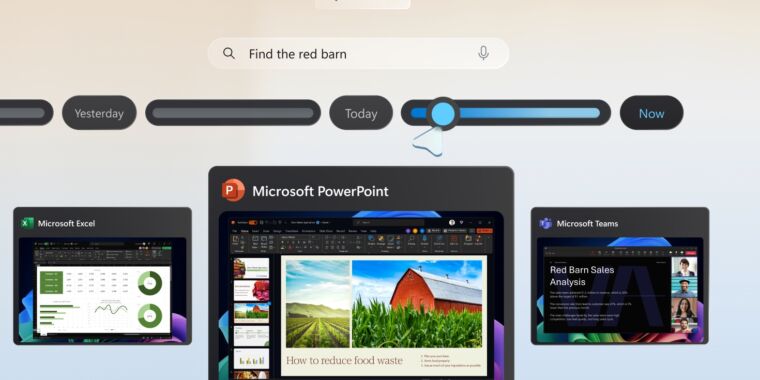Microsoft will begin sending a revised version of its controversial Recall feature to Windows Insider PCs beginning in October, according to an update published today to the company’s original blog post about the Recall controversy. The company didn’t elaborate further on specific changes it’s making to Recall beyond what it already announced in June.
For those unfamiliar, Recall is a Windows service that runs in the background on compatible PCs, continuously taking screenshots of user activity, scanning those screenshots with optical character recognition (OCR), and saving the OCR text and the screenshots to a giant searchable database on your PC. The goal, according to Microsoft, is to help users retrace their steps and dig up information about things they had used their PCs to find or do in the past.
The problem was that other users on the same PC, or attackers with physical or remote access to your PC, could easily access, view, and export those screenshots and the OCR database since none of the information was encrypted at rest or protected in any substantive way.
Among the changes Microsoft has said it will make: The database will be encrypted at rest and will require authentication (and periodic reauthentication) with Windows Hello before users will be allowed to access it. The feature will also be off by default, whereas the original plan was to turn it on by default and make users go into Settings to turn it off.



All very fair points. software security, its a big problem only getting worse for every OS atm.
Reflecting on recent events I have been impressed with immutibility and how nixos novel approach has really shined against the very big recent security incidents.
Edit: I should state clearly that nix is not for the faint of heart. I would only recommend it for technical IT professionals. Even then it has serious documentation problem and could do with some improvements around officially sharing configurations in the community.